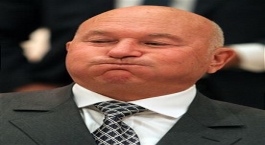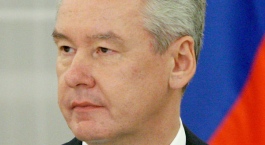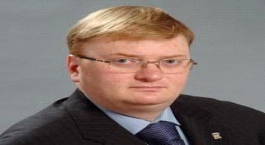BY NATASHA BARSOTTI – Looks like the successful
establishment of Pride Houses during the 2010 Winter Olympics in Vancouver
will not be replicated for the 2014 Sochi Games after a court backed Russian
authorities’ refusal of a bid to set up similar space for queer athletes.
![]()
Apparently, judge Svetlana Mordovina believes Pride House
activities could “undermine the sovereignty and the territorial integrity
of the Russian Federation due to the decrease of Russia’s population.”
“Such aims as creating an understanding of the
necessity to fight against homophobia and the creation of positive attitudes
towards LGBT sportsmen contradicts with the basics of public morality because
they are directed towards the increase of the number of citizens of sexual
minorities which breaches the understanding of good and evil, good and bad,
vice and virtue,” Mordovina’s ruling stated, according to Gay Star News.
During the Vancouver Games, it was estimated
that more than 20,000 people visited the three Olympic Pride House venues: the
pavilions in Whistler and Vancouver (5,000 and 2,000 visitors respectively) and
the official celebration bar, Score (15,000), located in the gay village.
“The final frontier of homophobia is in the sports field.
It’s there, but nobody talks about it,” Dean Nelson told Xtra a year before the Vancouver Olympics. Nelson, who produces WinterPride in Whistler, was
behind the push for the Vancouver and Whistler Pride Houses. Under the
Pride House umbrella, the idea was to have “a strategic and
concentrated” media message that educates the wider Olympic audience about
the “huge problem” of homophobia within sport, said Nelson, who
partnered with Qmunity, BC’s Queer Resource Centre, to host the Vancouver Pride
House.
Despite the decriminalization of homosexuality in 1993,
Russia’s virulent homophobia is well-entrenched. Myriad attempts to stage gay pride events have been repeatedly squelched — five times by previous mayor Yury
Luzhkov, who described them as “satanic gatherings,” and last year by
who described them as “satanic gatherings,” and last year by
Sergey Sobyanin — leaving Nikolai Alexeyev and fellow gay
activists to resort to creative forms of subterfuge to throw police and other
anti-gay forces off their scent as they try to pull off short marches and protests
with rainbow banners in train. 
Undaunted, activists have designated Sunday, May 27 Gay Pride
Day.
Lately, several cities have upped the homophobia ante by
passing laws that prohibit so-called homosexual propaganda. St Petersburg is
the latest to approve such a measure, calling for fines against people who
promote “public actions aimed at propaganda of sodomy, lesbianism,
bisexuality and transgenderism among minors.” Those who flout the law
face penalities ranging from 5,000 rubles ($170 USD) for individuals to 500,000
rubles for businesses.
The cities of Ryazan, Arkhangelsk and Kostroma preceded
St Petersburg in similar legislative moves that the Orthodox Church and
political authorities are looking to install across the country. St
Petersburg’s law, authored by United Russia deputy Vitaly Milonov, comes into
effect March 17.

In the wake of these legislative crackdowns on gays,
Canada’s Department of Foreign Affairs is advising Canadians travelling in St
Petersburg to “avoid displaying affection in public, as homosexuals can be
targets of violence.”
Foreign Affairs Minister John Baird told Parliament March 16 that the law “runs contrary to core Canadian values of freedom of speech, of human rights and the rule of law.”

 Why you can trust Xtra
Why you can trust Xtra


